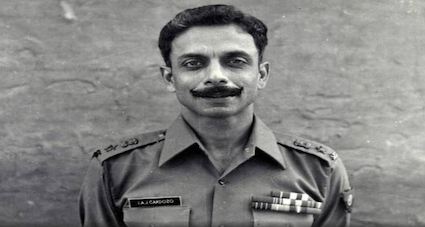(This is the eighth piece in a series on ’71 Indo-Pak War which is celebrating its 50th year this year. The first , second, third , fourth, fifth, sixth and seventh piece could be read by clicking on links).
Major General Ian Cordozo has a sense of humour few have, and a unique perspective too. It was for nothing that his story is still recounted among fighting troops in langars and messes. He set up an extraordinary example among Gorkha troops he was leading at Sylhet in 1971 India-Pakistan war. An example which perhaps remains the only incident of its type and such a thing has not been recorded from any battlefield around the world.
As a young Major, he was inducted into the battle when his predecessor died, and he was asked to take charge. Not a very auspicious beginning, but far more difficult days lay ahead for him. He was one of the first Indian soldiers to be dropped in the war zone by a helicopter during that conflict and led an assault on a Pakistani position which led to surrender of over 1,000 troops. Interestingly, he barely had 500 Indian soldiers when he achieved this!
How it all happened is a story of a pure stroke of luck, and his being calm and attentive despite the adversity he saw himself in. It so happened that in the Sylhet area, his battalion got stuck in a place where they started running out of ammunition as also rations. Senior commanders promised to send more troops to reinforce his position but the situation developed in such a manner that the promised additional troops never arrived. Means of communication 50 years ago were primitive at best compared to what we have today.
Radio reports were a regular source of updates, both for the Indian army and its adversary, the Pakistani troops fighting against them. Reports by BBC correspondents about the situation on different fronts were considered one the most reliable sources of updates. One particular day, a BBC report said that a Gorkha brigade had landed in Sylhet to take on Pakistani positions. Both Indian and Pakistani forces heard this report and this pertained to the area in which Cordozo was fighting. Acting swiftly, he asked his troops to bring heavy fire on the enemy which was unnerved on hearing that a Gorkha brigade had landed there to take on them.
As luck would have it, the report was erroneous, and the word brigade was used by the correspondent instead of battalion. The renewed heavy volume from the Indian side was thought by the Pakistanis to be the result of the induction of new troops, far numerous than them, into the area. The Pakistanis decided that surrender was a better option than being butchered by Gorkhas using their khukuris to deadly effect. So it happened that it was a battle of nerves, remarkable bravery by Gorkha troops, the man commanding them, Cordozo, and a bit of unintended help from a BBC correspondent all rolled into one.
It may be worth mentioning here that a battalion may consist of up to 1,000 men but a brigade can comprise three to six battalions, with three fighting battalions and elements of supporting arms. The composition of a brigade can thus vary subject to the task assigned.
Good luck seems to have deserted Cordozo as quickly as it had descended upon him. Soon after the surrender, Cordozo was moving to another location when he stepped on to a mine and was thrown into the air, with one leg badly damaged. Fortunately, other soldiers accompanying him saw what had happened, extricated him from that area and took him to a nearby field hospital. Cordozo regained consciousness after some time and got his bearings. He asked for morphine to lessen pain, as also for other drugs that are usually available at such places.
The men who had evacuated him gave the bad news that none of the things he had asked for was available. It was then that Cordozo realised that if his leg is not amputated, gangrene may set in his body. To deal with that situation, he asked his batman Narbahadur to cut off the injured leg using khukuri. The batman could not muster courage to obey `Cartoos Saheb’ (as Cordozo was called so by his troops as they had difficulty in pronouncing his name) and do the needful.
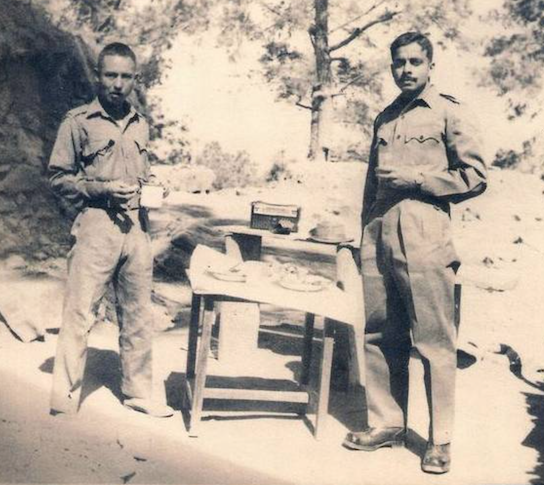
Cordozo then decided to take matters in his own hands, requisitioned his khukuri and severed his own leg! Despite no pain killer being available! He then asked Banbahadur to dig and bury the leg. About his sense of humour we discussed at the beginning of the story and he describes that piece of land in Bangladesh as his own. Where a part of him was buried 50 years ago! The grave of his leg, if you please.
Cordozo was then operated by a Pakistani army doctor who had been taken prisoner around that time. He was a recipient of Sena Medal (the first Indian to receive it) for his grit and determination in the face of severe adversity, and a near death experience. Cordozo has recounted 14 stories in a book 1971 – Stories of Grit and Glory from the Indo-Pak War, his own story being one of these. He has passed this more as an anecdote in passing, and told matter of fact, describing the other 13 stories of bravery displayed on land, in sea and in air.
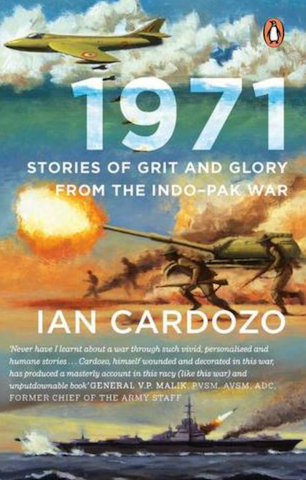
Hailing from Goa, Cardozo lives in Delhi but he had spent his childhood in Bombay. Cordozo says World War II stories fascinated him and he drew inspiration from S Rodrigues, a senior in the school, to join the Army. Incidentally, Rodrigues was Chief of the Army Staff from July 1990 to June 1993.
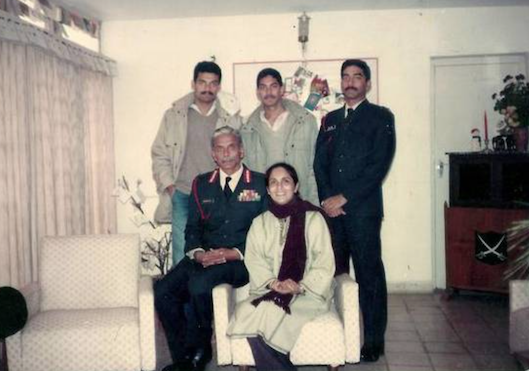
“I didn’t join the Army to be chained to a desk,” Cordozo said, describing his journey in the Army after suffering disability. Cardozo was fitted with an artificial leg at Artificial Limb Centre, Pune, perhaps one of the best establishments in India making artificial limbs. He had to fight for many years to get the command of a battalion as the Army was initially reluctant to give him command. However, he outperformed his able bodied peers, climbed mountains with the artificial leg and ran races!
For long, he even remained a marathoner and by dint of his determination, and outstanding performance, proved that disability could not hold him back. He was first war-disabled Indian Army officer who got command of a battalion as also a Brigade later. After his retirement, he became Chairman of the Rehabilitation Council of India.
Cordozo, as a GC (Gentleman Cadet), at the National Defence Academy, won both gold and silver medals, the first to do so. It is so rare that it has happened only once later till date. The gold medal is given to the cadet of the Passing Out Parade (POP) for all round best performance. The silver medal is given to the cadet who is first in the order of merit in the batch. He received these medals from then Army Chief K S Thimayya in June 1957.
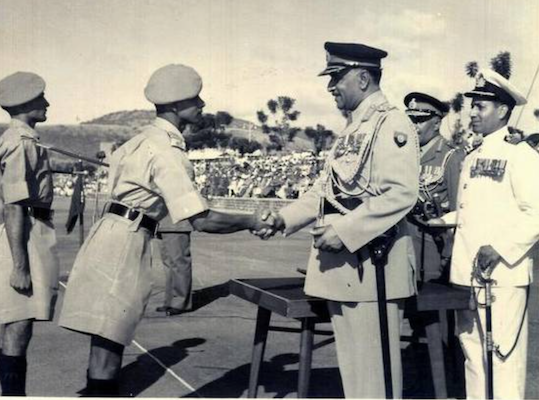
(Akshay Kumar has announced a movie “Gorkha” in which he would play extraordinary Major General Ian Cardozo. There is a little detail in the movie’s poster which was erroneous and which the film star has promised to sort out).
Sant Kumar Sharma, a seasoned journalist, is an authority on Jammu and Kashmir. Two of his books on Article 370 and Delimitation are already out. The third one on Indus Waters Treaty is now out and could be bought here.
Sant began as a teacher but after six years, joined the Indian Express, Chandigarh in 1990, the year when terrorism was taking its first step in J & K and soon there would be exodus of lakhs of Kashmiri Pandits from the Valley. He subsequently worked for The Statesman, The Times of India and Star News among others. He is based in Jammu since May 2000.
He edits epaper.earthnews.in, a newspaper from Jammu presently.


